Science
At Pallister Park Primary School, we recognise science as a core, integral part of the National Curriculum and therefore give the teaching and learning of science the prominence it requires.
We follow the 2014 National Curriculum for science, which aims to ensure that all children:
- Develop scientific knowledge and conceptual understanding through the specific disciplines of biology, chemistry and physics
- Develop understanding of the nature, processes and methods of science through different types of science enquiries that help them to answer scientific questions about the world around them
- Are equipped with the scientific knowledge required to understand the uses and implications of science, today and for the future
Our children begin their science journey in EYFS where they start to explore and make sense of the world around them. Their curiosity is nurtured, and they are encouraged to ask questions and make discoveries for themselves. The intent is that the children carry this mindset into KS1 and KS2, where they continue to attain the knowledge and understanding that they need to find the answers and make connections.
Alongside the acquisition of knowledge, children progressively develop their working scientifically skills and learn how to carry out different types of scientific enquiry. Each year, the children build upon their previous learning and experiences to further their understanding of different concepts, expand their use of scientific vocabulary and develop their independence and confidence with leading investigations.
Our children learn about diversity within science and make links in their learning to scientific careers to broaden their understanding of science in the real world. Through this, they become aware of current science-related issues and learn about ways to protect and enhance the world that we live in. They discover scientists who have shaped, and are currently shaping, the world that we live in and develop their own aspirations for their future.
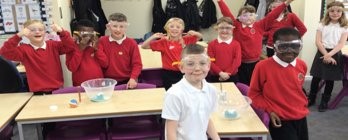
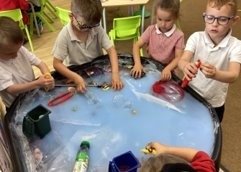
History
At Pallister Park Primary we aim to deliver a high-quality, broad history curriculum which inspires our pupil’s curiosity to know more about the past. With our teaching of history, we intend to help children make sense of the world in which they live and develop a greater understanding of their identity, both within their local community and wider world.
In line with the National Curriculum, children will build a coherent and chronological understanding of the past both in Britain, their locality and the wider world, understand how past events and actions have influenced and formed their present lives and appreciate how the world in which they live has changed over time. Our history curriculum, underpinned by British Values, encourages children to appreciate diversity and is designed to ensure it is fully inclusive for every child. Emphasis is placed upon children developing their historical vocabulary and they will be provided with opportunities to embed knowledge in memory.
In addition to historical knowledge, we intend our children to develop a range of transferrable skills through studying history, including the ability to think critically, ask perceptive questions, interrogate sources and reliability, appreciate different viewpoints and communicate their ideas effectively in various ways. We want our children to love history, learn from the past and be equipped with the knowledge and skills to face challenges in the future, both in Key Stage 3 and as an adult in the wider world.
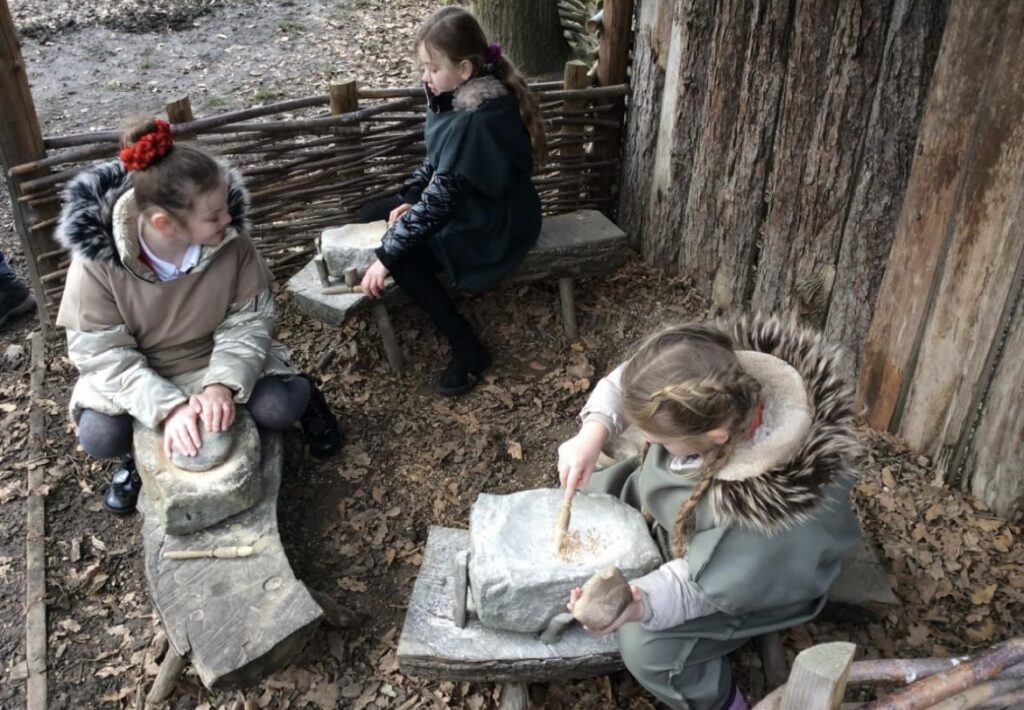
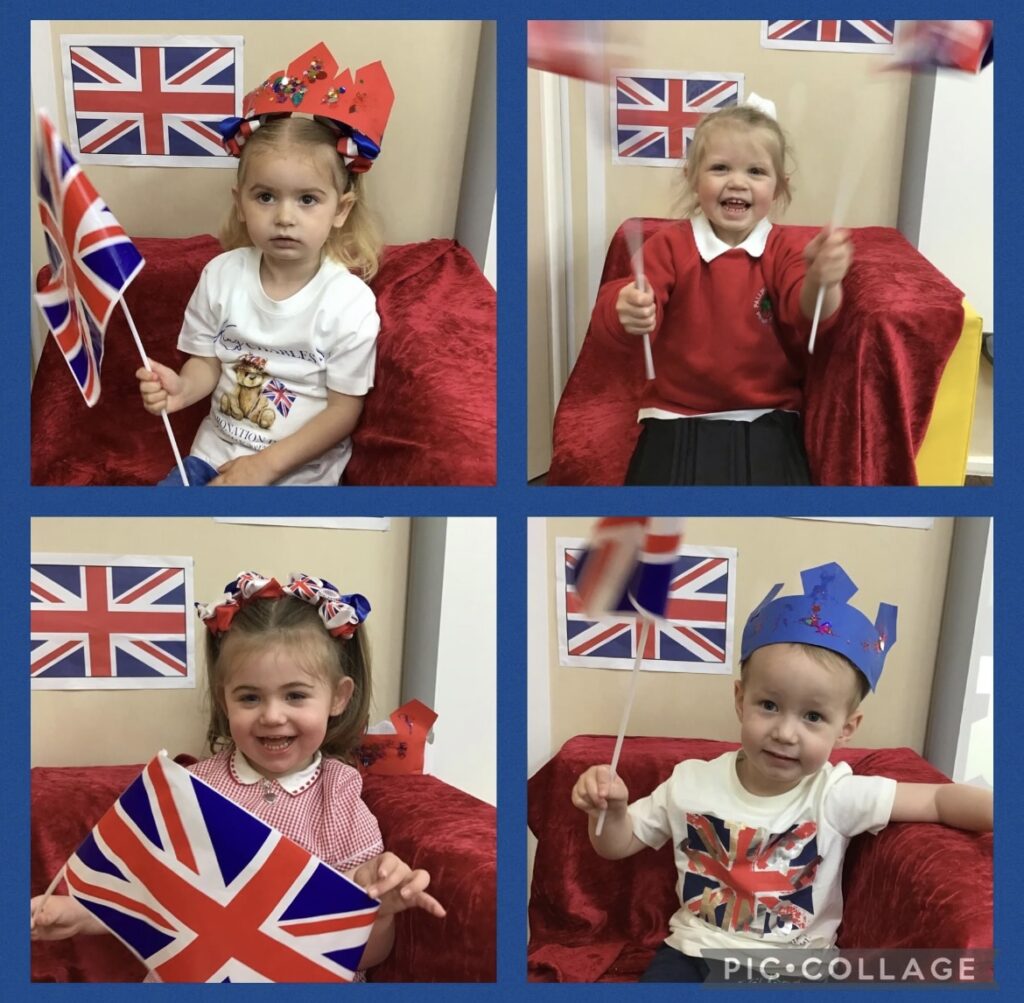
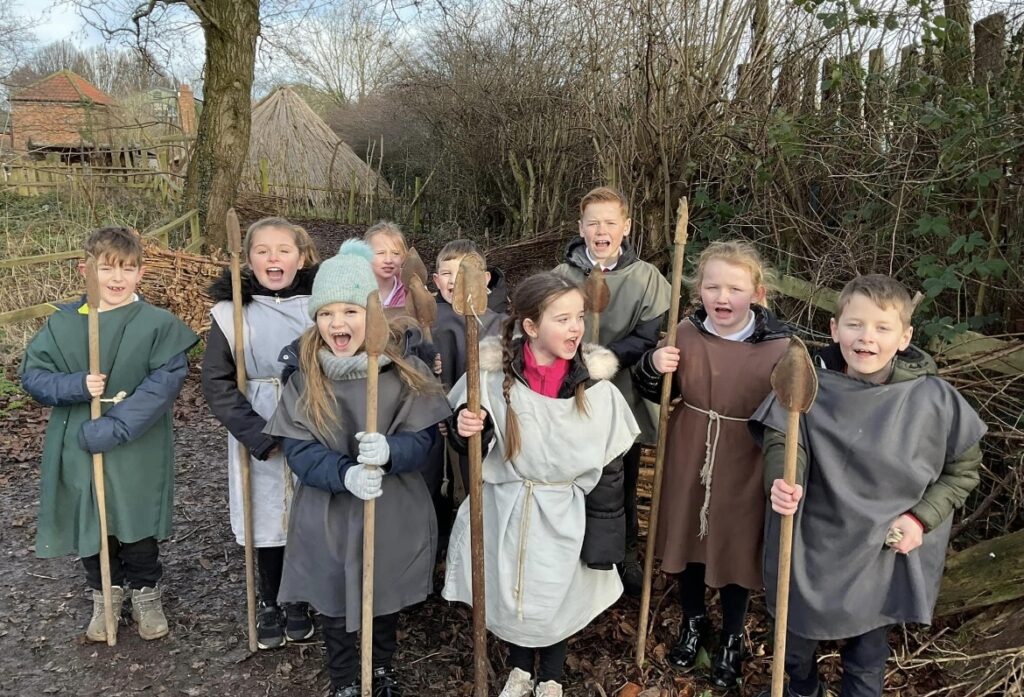
Geography
Geography is a valued part of the curriculum, providing a purposeful means for exploring, appreciating and understanding the world in which we live and how it has evolved. Geography explores the relationship between the Earth and its people through the study of place, space and environment. Geography is concerned with pupils learning about their own locality, whilst becoming aware of and developing knowledge and understanding of the world beyond their own environment. At Pallister Park Primary, in KS1 and KS2 we use the Oddizzi scheme of work and resources to ensure we offer curriculum breadth, coverage, content and a structure that enables clear progression in knowledge and skills. Prior to this, within the Early Year Foundation Stage, geography is included as part of Understanding the World. The children learn to investigate similarities and differences, the local environment and cultures and beliefs, fostering the skills essential to developing historical understanding.
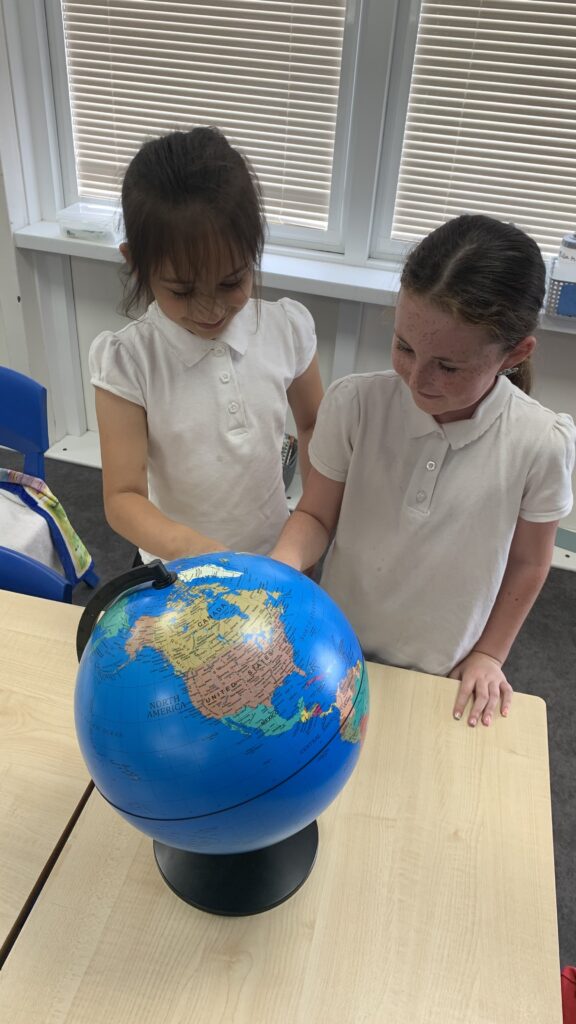
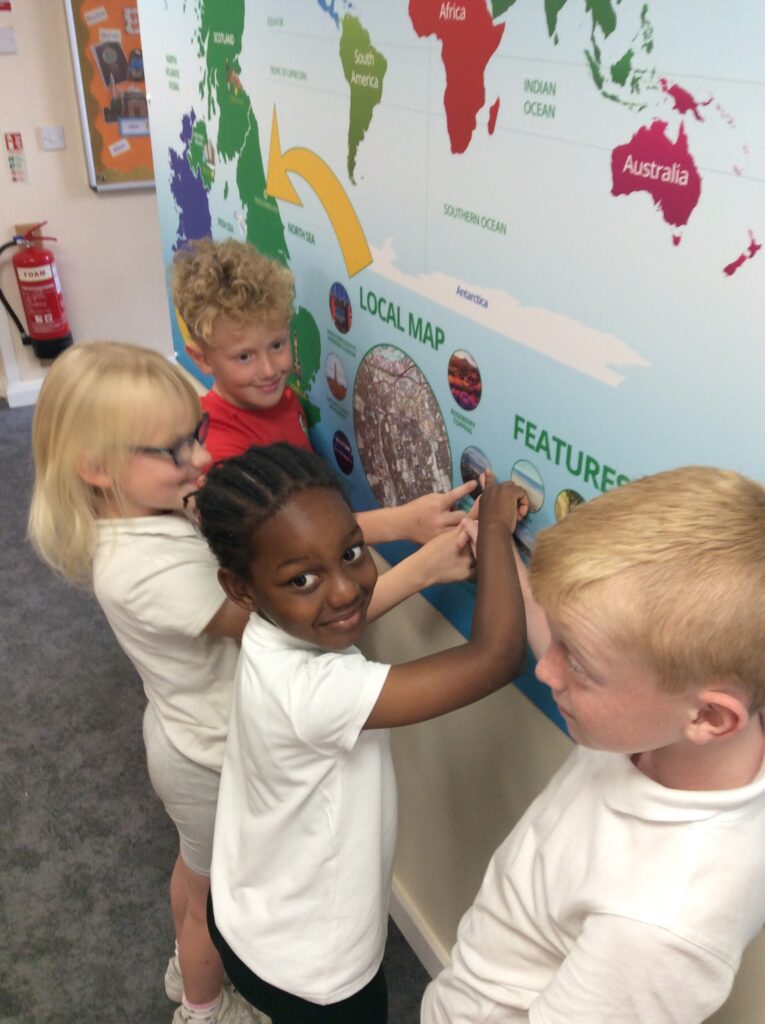
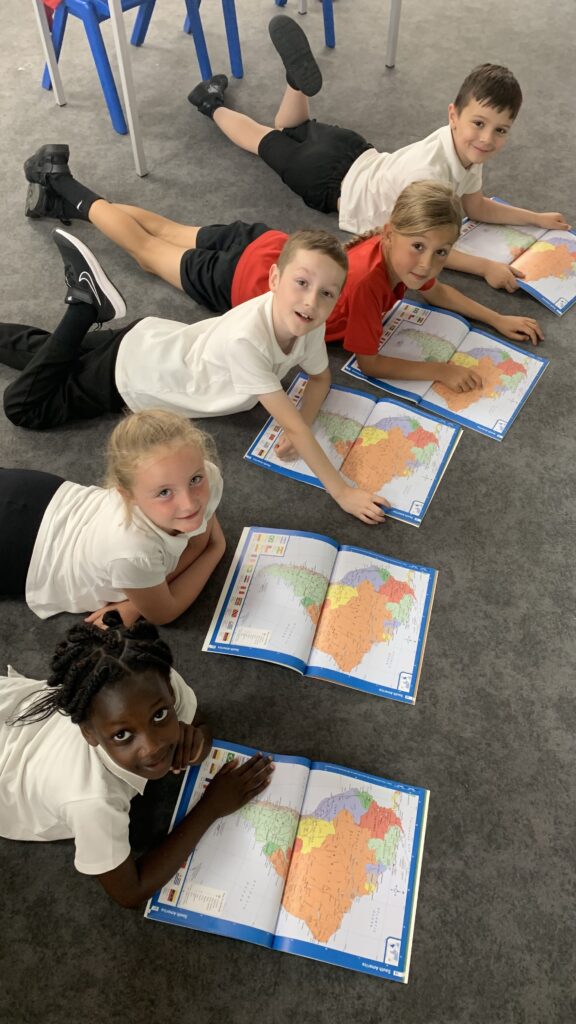
Art and Design
The ‘earth’ without ‘art’ is just ‘eh!’
We teach art in school because it is the ideal way that we can enable children to reach their creative potential and here at Pallister Park a balanced and rich curriculum is offered.
It also encourages expression and visual thinking, which in turn helps children learn other subjects.
Children can develop their observational skills through art and design, which helps children become better observers to the world around them.
By keeping our understanding of all discipline areas (drawing, painting, sculpture and printing) as open as possible, we ensure that we keep art as inclusive ad accessible to every pupil.
Pupils are provided with opportunities to build skills and knowledge through a combination of lessons that are linked to year group topics so that repeated practice is continued and built upon. We do this as we believe art is subjective and experiential and the knowledge and skills gained are best understood when it is experienced.
Children study an assortment of artists both from the local area; worldwide including influential members of the LGBT+ community; and use their techniques to create masterpieces of their own. Once completed, they are able to talk and review their work in a positive way and state what they may do differently next time.
Through enabling pupils to think about the purpose of art and artists to all our lives, we will ensure that as the children grow, they feel entitled to express and better understand themselves in the world that they live through creating and discussing art.
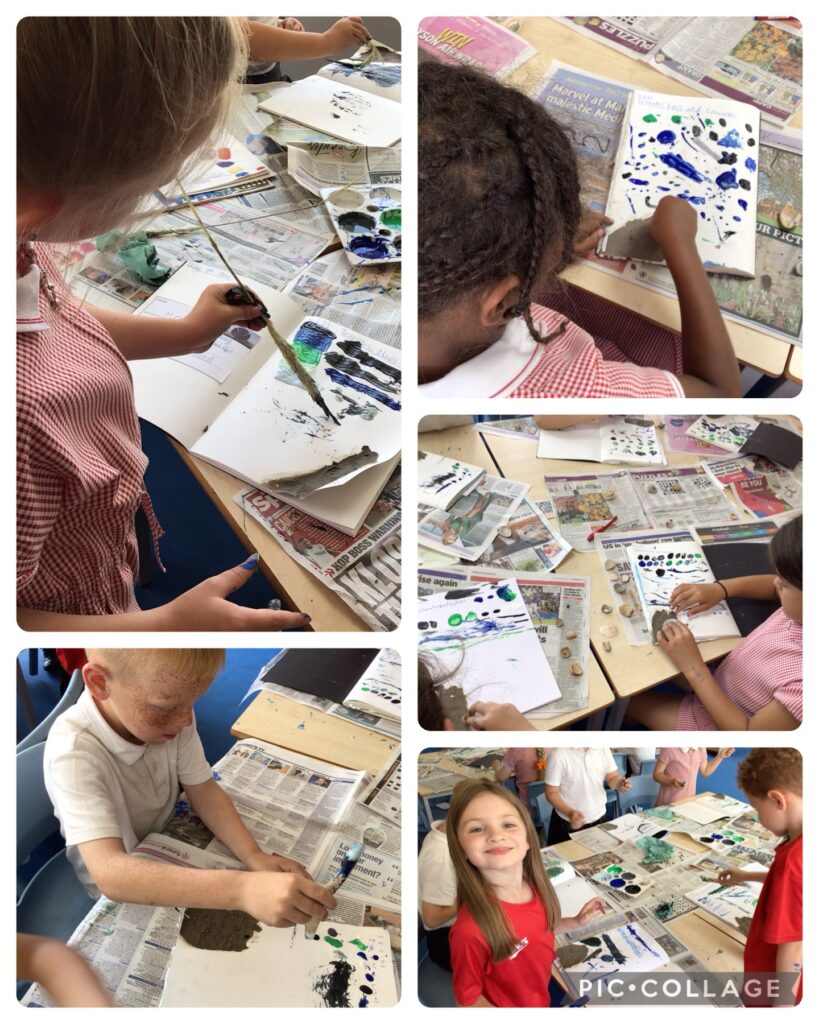
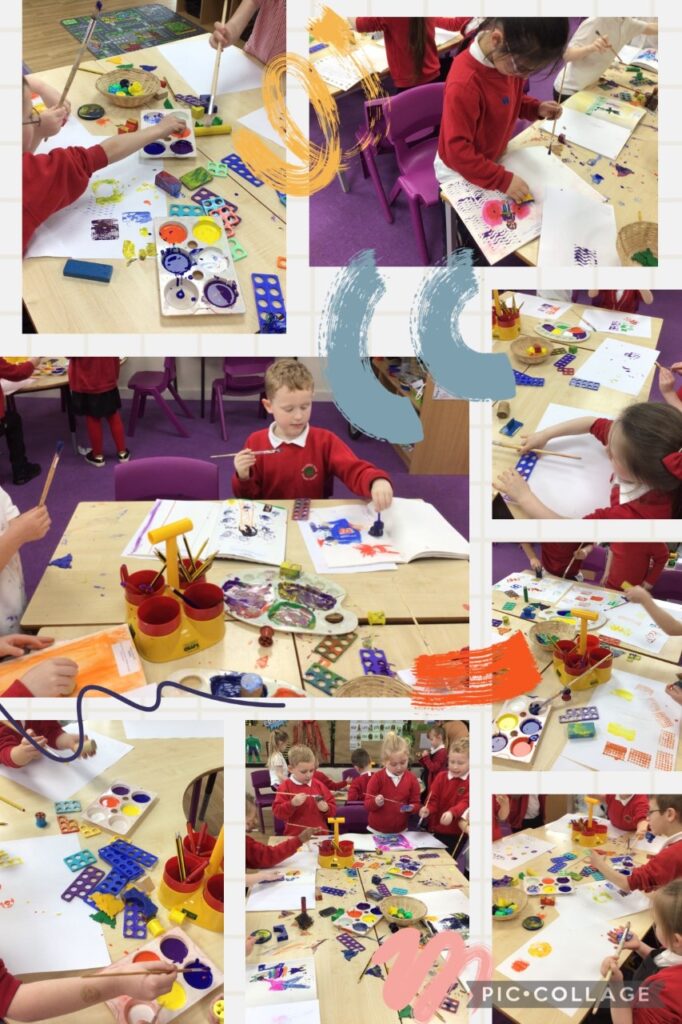
Design and Technology
At Pallister Park Primary school, we intend for Design and Technology to be creative, practical and to inspire children to problem solve and develop their own creative ideas. We aim to provide our children with the opportunity to use their imaginations to design and create products within a variety of contexts, to provide both meaning and motivation to their learning.
As part of our DT curriculum, children will be taught a range of topics including food, textiles, mechanisms, structures and electrical systems. Through hands-on, practical experiences, we hope that children will leave our school in Year 6 with some knowledge and skills of DT that will inspire them to become chefs, engineers, sculptures, carpenters, designers, architects and more. We recognise the important role of DT in preparing our children with skills for life.
At Pallister Park Primary school, DT is a fundamental part of teaching and learning and is taught from EYFS to Year 6. Children in EYFS are encouraged to explore a range of materials, textiles and food items whist also developing their creativity, imagination and problem solving. This is the foundation on which learning is developed throughout the school.
‘High- quality design and technology education makes an essential contribution to the creativity, culture, wealth and well-being of the nation’ (The National Curriculum)
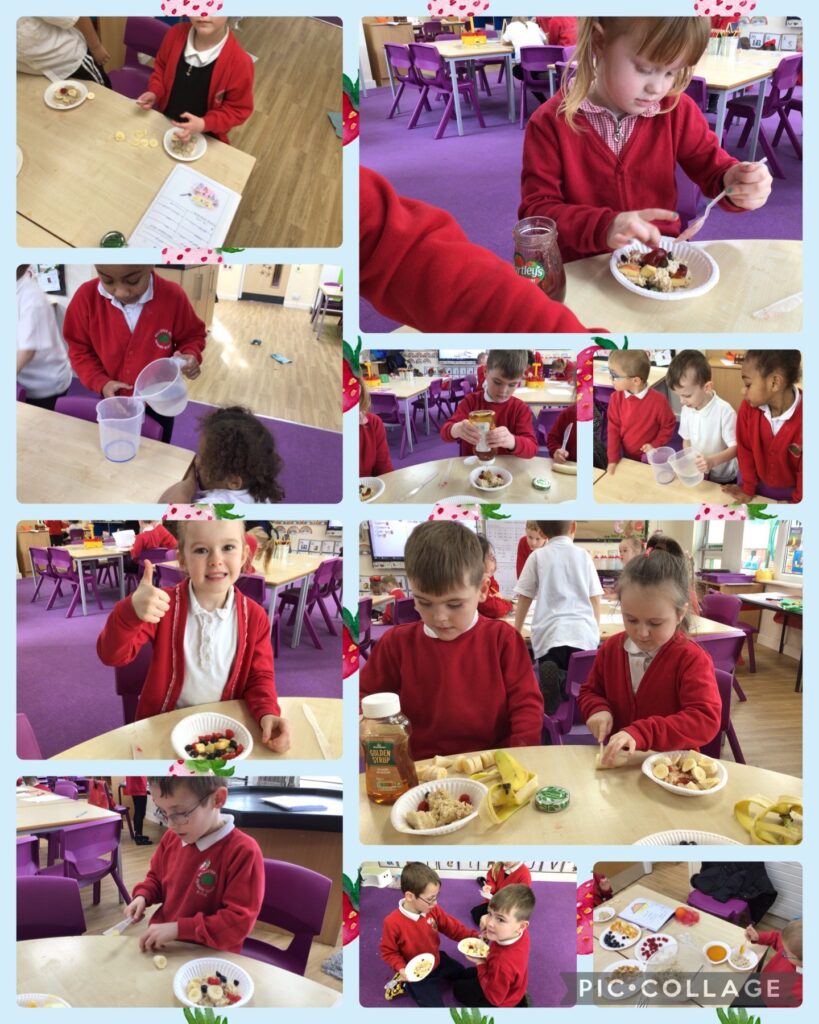
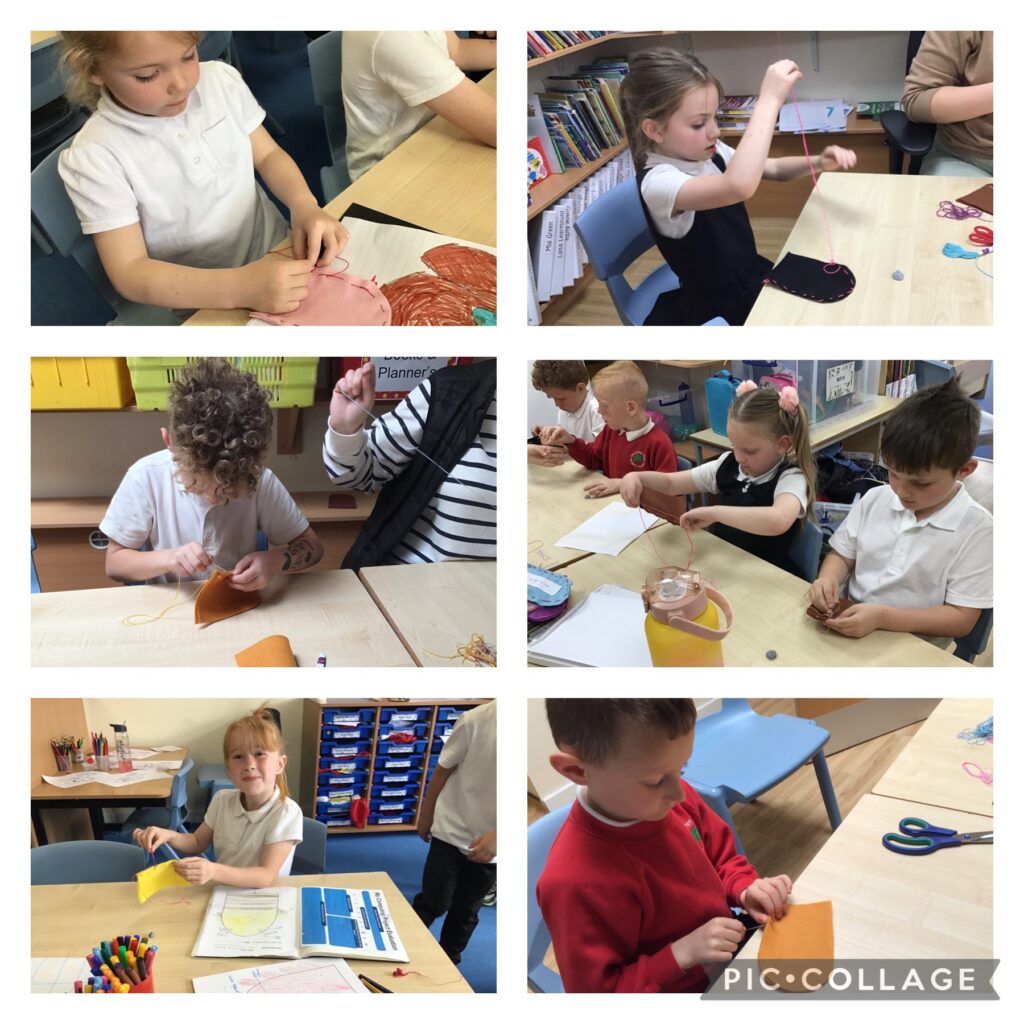
Spanish
Our whole school vision for curriculum is to ‘encourage our pupils to develop a love of learning and to become confident, independent learners, inquisitive about the world around them’ and to ‘provide a broad, engaging and relevant curriculum’. Pallister Park Primary School intends to use the ‘Language Angels’ scheme of work and resources to ensure we offer a this relevant, broad, vibrant and ambitious foreign languages curriculum that will inspire and excite our pupils using a wide variety of topics and themes. All pupils will be expected to achieve their full potential by encouraging high expectations and excellent standards in their foreign language learning – the ultimate aim being that pupils will feel willing and able to continue studying languages beyond key stage 2.
The intent is that all content will be continuously updated and reviewed annually, creating a dynamic programme of study that will be clearly outlined in both long-term and short-term planning. This will ensure that the foreign language knowledge of our pupils progresses within each academic year and is extended year upon year throughout the primary phase and, in so doing, will always be relevant and in line with meeting or exceeding national DfE requirements.
The four key language learning skills; listening, speaking, reading and writing will be taught and all necessary grammar will be covered in an age-appropriate way across key stage 2. This will enable pupils to use and apply their learning in a variety of contexts, laying down solid foundations for future language learning and also helping the children improve overall attainment in other subject areas. In addition, the children will be taught how to look up and research language they are unsure of and they will have a bank of reference materials to help them with their spoken and written tasks going forward. This bank of reference materials will develop into a reference library to help pupils recall and build on previous knowledge throughout their primary school language learning journey.
At Pallister Park Primary School our language learning begins in Year 3 and continues in each year group through to Year 6. The intent is that all pupils will develop a genuine interest and positive curiosity about foreign languages, finding them enjoyable and stimulating. Learning a second language will also offer pupils the opportunity to explore relationships between language and identity, develop a deeper understanding of other cultures and the world around them with a better awareness of self, others and cultural differences. The intention is that they will be working towards becoming life-long language learners.
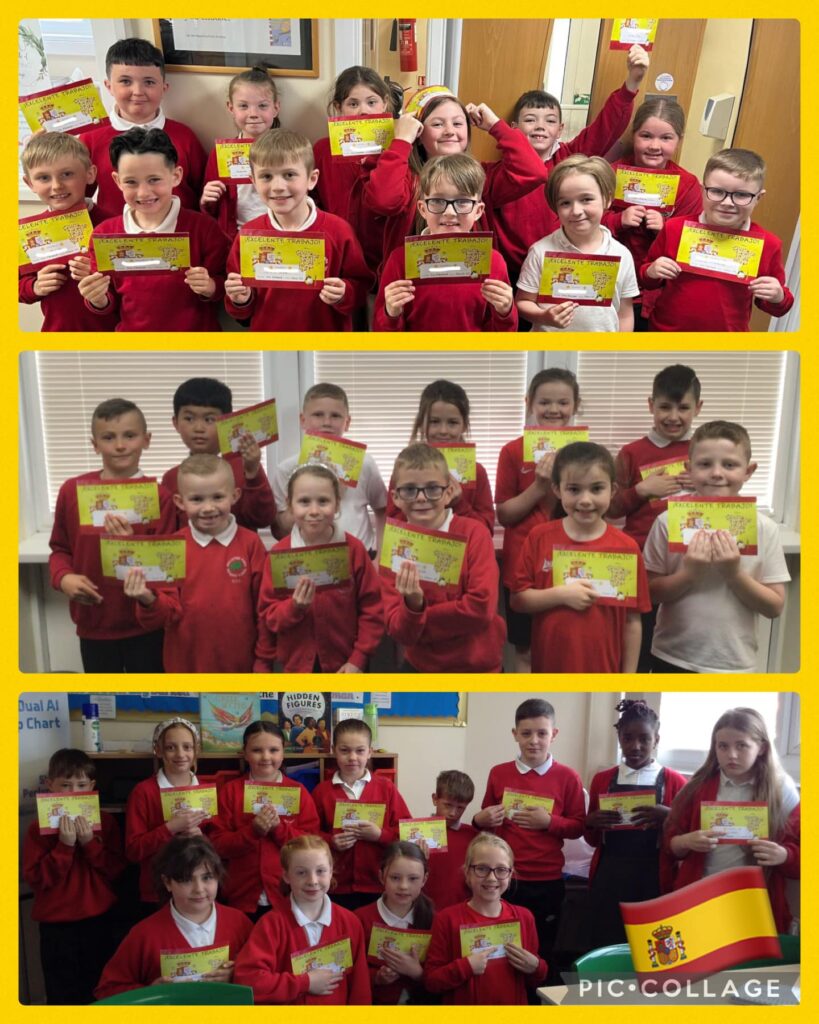
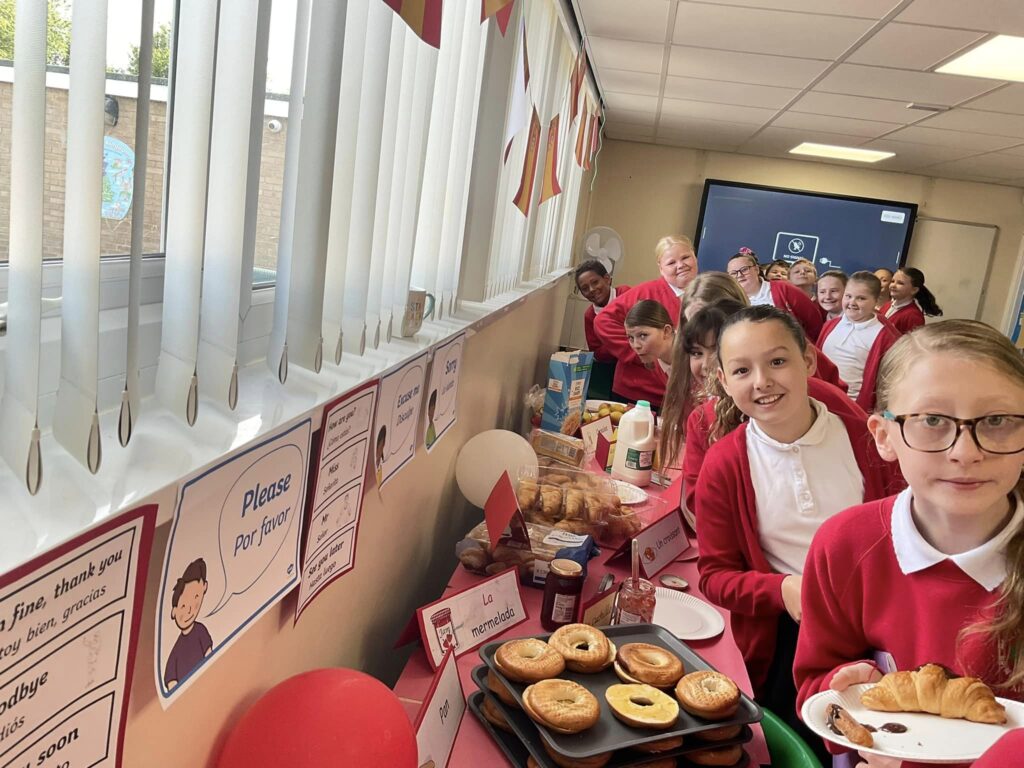
Music
At Pallister Park Primary School we recognise that good quality music education contributes considerable musical and non-musical benefits to our pupils. The intent is that our music curriculum offers opportunities for our pupils to develop attitudes and attributes that enhance life skills which can also support learning in other areas such as, listening, the ability to focus, creativity, perseverance, self-confidence and empathy towards each other. It enables pupils to appreciate aspects of both British Values and the contribution of other cultures.
We follow the National Curriculum for Music, which aims to ensure that all children:
- perform, listen to, review and evaluate music across a range of historical periods, genres, styles and traditions, including the works of the great composers and musicians
- learn to sing and to use their voices, to create and compose music on their own and with others, learn to play musical instruments and use technology appropriately
- understand and explore how music is created, produced and communicated, including through the inter-related dimensions: pitch, duration, dynamics, tempo, timbre, texture, structure and appropriate musical notations.
Children from Reception to Year 6 will have three half termly blocks of music tuition delivered by Apollo Arts and we will use also Charanga Music in KS1 and Sing Up in KS2 to support the teaching of music within our school. We feel that this gives our children the opportunity to develop their knowledge and skills and places equal weight on the three aims of the National Curriculum.
The intent is that all content will be regularly updated, creating an engaging programme of study that will be outlined in the long term and medium term planning. This will ensure that our children’s musical skills and knowledge progress throughout each academic year and are extended as they move through their primary phase of learning and as a result, remain in line with meeting or exceeding national DFE requirements.
Pallister Park school takes great pride in providing children with opportunities to perform for a wider audience through concerts, shows and other musical events. The intention is that pupils will develop an interest in music and ultimately aim to build up their love of music, self- confidence and sense of achievement in this subject.
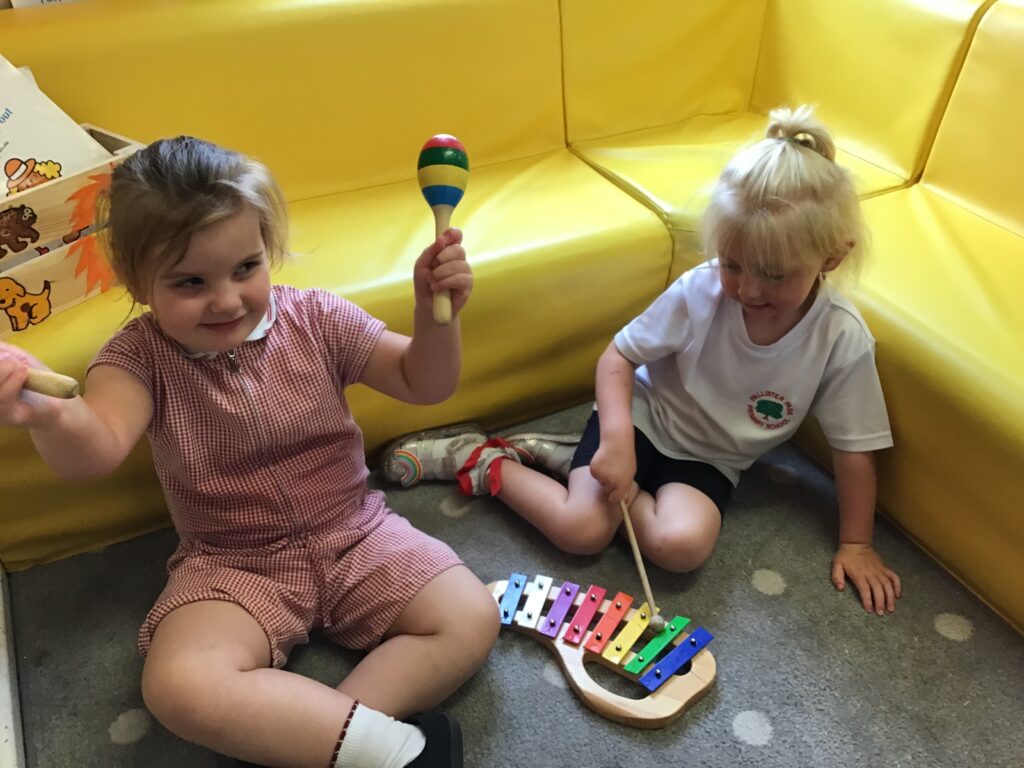
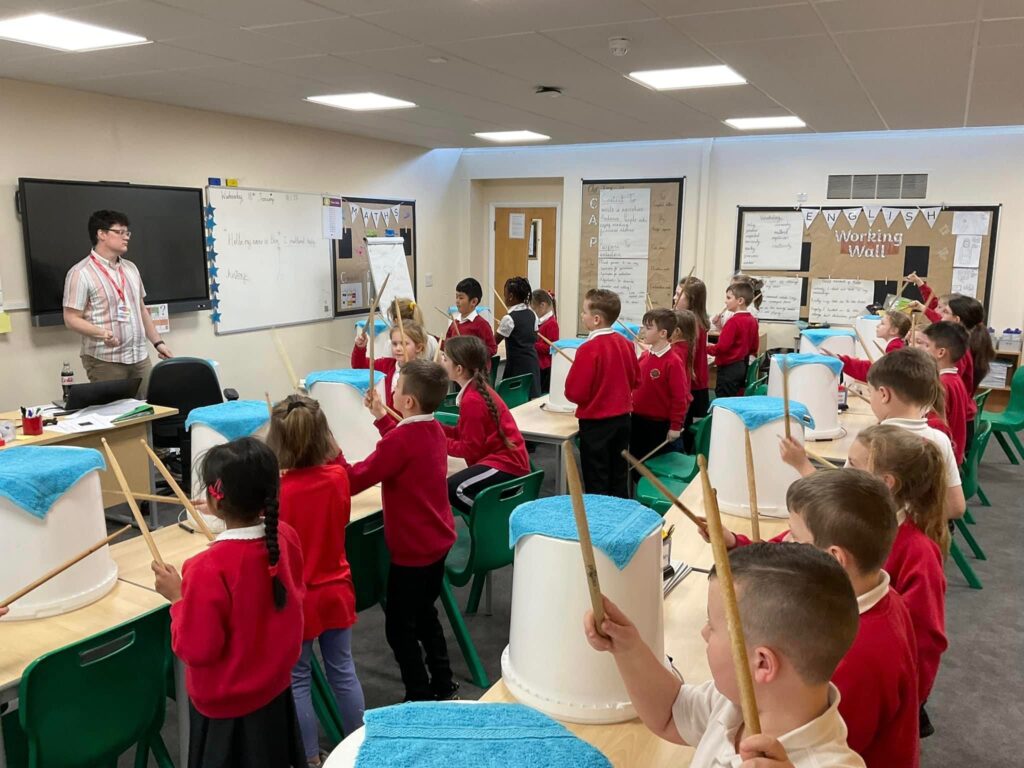
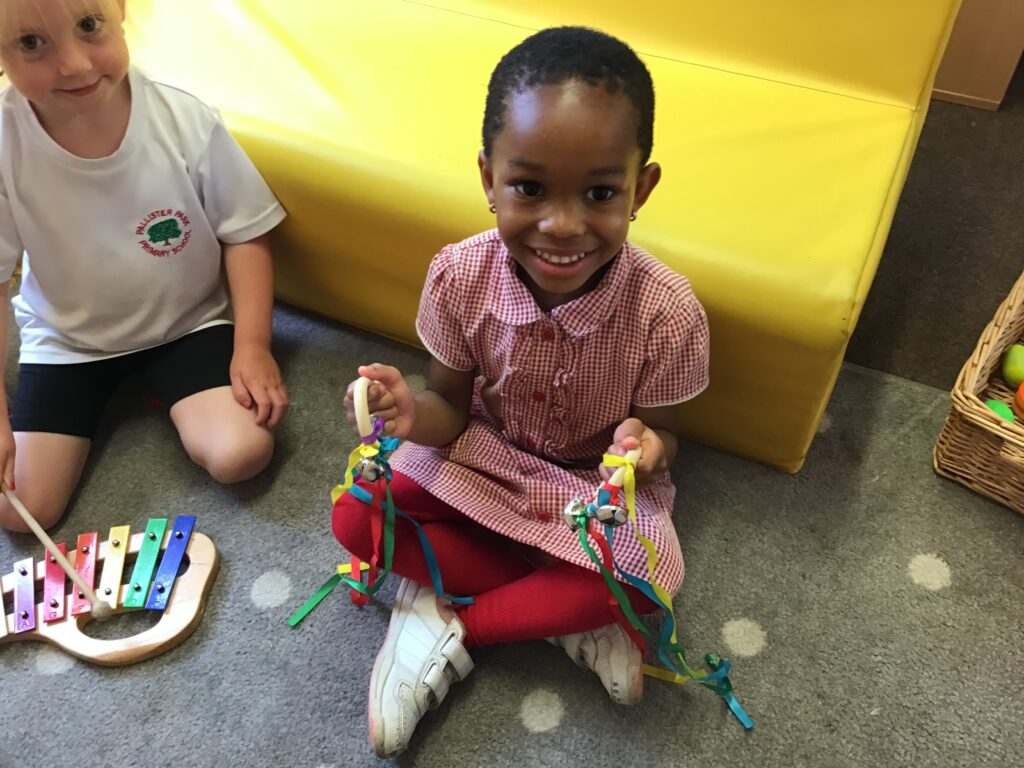
PE
At Pallister Park Primary School, we want to give our children the best possible chance to leave our school as physically literate. The 5 pillars (confidence, competence, motivation, knowledge and understanding) are vital to our children’s progression and their outlook on PE, physical activity, and sport as they progress through life.
Our PE curriculum targets developing fundamental movements in EYFS and KS1 and from this, allows our children to flourish and develop/apply these skills in a variety of different activities/sports as they progress into upper KS2. Our high-quality PE curriculum develops physical literacy and puts the whole child at the forefront of it. It allow pupils to learn about themselves, the importance of a healthy lifestyle, self-expression, and concepts such as fair play and respect. All pupils are entitled to benefit from high quality PE provision and there is significant evidence to show that this supports other learning right across the curriculum. It also contributes to healthy and active lifestyles, improves emotional well-being, reduces poor behaviour, increases attendance, and develops key skills such as leadership, confidence, social and team building skills. It also contributes to the development of a range of important cognitive skills such as decision making and analysis, and social skills such as teamwork and communication.
Physical Education encourages pupils to be active and supports them in their understanding of how to participate safely and effectively. They understand the barriers to participation and work to overcome these for themselves and others. Our PE curriculum is inclusive and ensure that pupils of all abilities access the range of activities we offer and that they are physically active for sustained periods of time in order to encourage them to lead healthy, active lives. There are also opportunities for pupils to take on leadership roles in which they can build character and embed values such as fairness and respect.
A high-quality physical education curriculum can inspire all pupils to succeed and excel in competitive sport and other physically demanding activities. We are constantly improving our programme of intra and inter school competitions which provides opportunities for pupils to participate in competitive sports and activities both in and beyond the curriculum. This means that pupils have the opportunity to participate at all four levels of competitive sport.
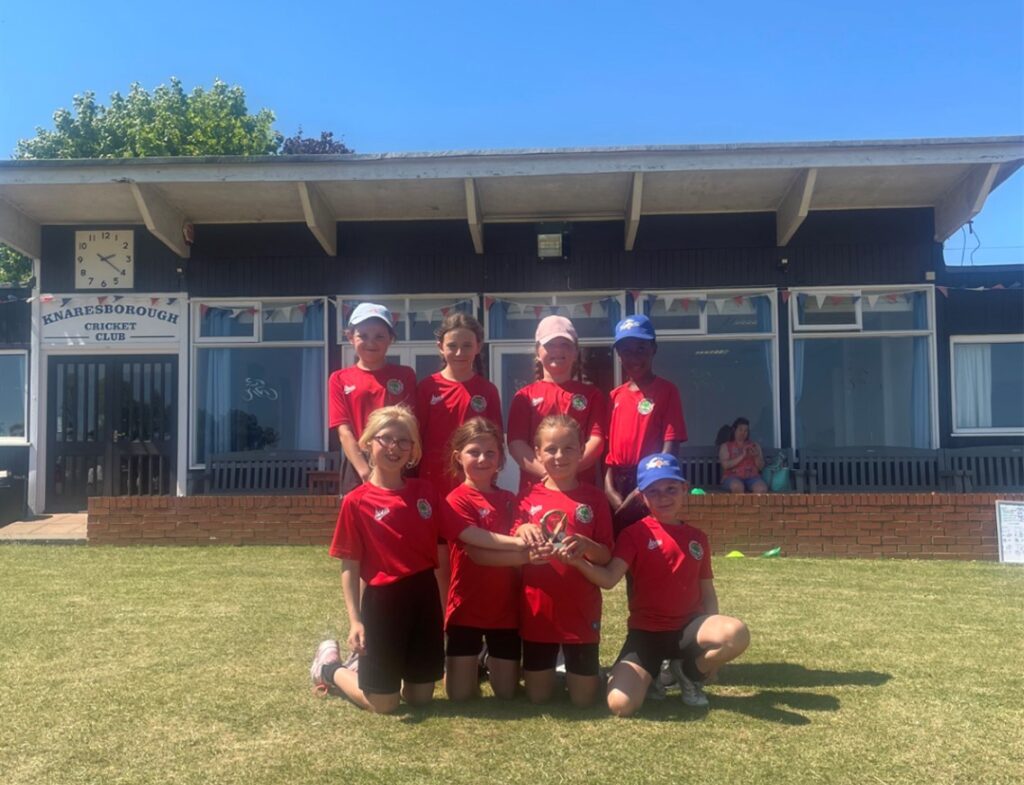
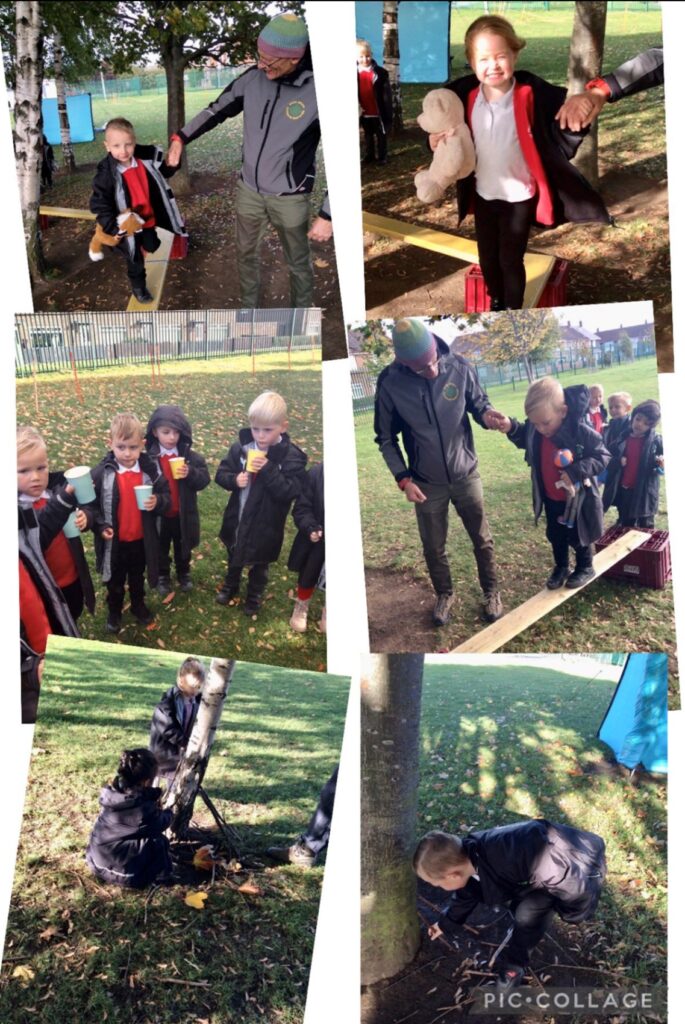
Computing
At Pallister Park Primary School, we want pupils to be masters of technology and not slaves to it. Technology is everywhere and will play a pivotal part in students’ lives. Therefore, we want to model and educate our pupils on how to use technology positively, responsibly and safely. We want our pupils to be creators not consumers and we use ‘ICT with Mr P’s’ approach to ensure that we offer a broad and engaging computing curriculum, encompassing computer science, information technology and digital literacy. We want our pupils to understand that there is always a choice with using technology and as a school we utilise technology across all subjects to model positive use. We recognise that the best prevention for a lot of online safety concerns which we currently see with technology is through education. Building our knowledge in this subject will allow pupils to effectively demonstrate their learning through creative use of technology.
We acknowledge that technology continuously evolves, and it is our intent to continue to respond and adapt to this evolution by regularly reviewing our programme of study which is outlined in our long and short-term planning. Our knowledge rich curriculum has to be balanced with the opportunity for pupils to apply their knowledge creatively which will in turn help our pupils become skilful computer scientists. We also encourage staff to embed computing across the whole curriculum, to make learning creative and accessible. This ensures that children continue to progress and build on their knowledge and understanding of technology each year in line with the National Curriculum.
Our computing learning begins in Reception and continues each year through to Year 6. The intent is that pupils become confident and effective creators with an ability to use technology effectively both now and in the future.
PSHE
Our curriculum statement states that ‘teamwork and responsibility are an essential part of our school values where we listen to the ideas and opinions of each other and feel part of an extended family.’ Pallister Park Primary School intends to use the ‘SCARF’ scheme to ensure we offer our pupils an exciting, broad and relevant PSHE and RSE curriculum that prepares pupils to encounter the opportunities, responsibilities and experiences of both their present and adult life. We aim to give our pupils a safe environment in which they are given the opportunity to explore and discuss their relationships, health and changes within the world around them. The aim is that pupil’s raise their aspirations, can make informed decisions, assess risk and tackle challenges. We expect this to impact on both their academic and non-academic outcomes, with the belief that it will improve their life chances.
It is our intent that the PSHE/RSE curriculum will be updated and reviewed on an annual basis to ensure that it reflects the world in which children live and the challenges they will face. This will ensure that our curriculum is relevant to their future lives and in line with meeting, or exceeding, national DfE requirements.
At Pallister Park Primary School, we have a long-term, progressive plan which covers learning from Year 1 through to Year 6. It directs each year group to cover six units of work throughout the academic year. Every year group will cover the three key PSHE themes; Health and wellbeing, Relationships and Living in the wider world. All DfE statutory RSE requirements are taught by the end of year 6. As we aim to provide children with a ‘spiral’ curriculum, each theme may be explored more than once during an academic year.
The intent is that our curriculum equips our children to face the challenges of the changing world while celebrating diversity, encouraging respect and building a sense of belonging to an extended family. Ultimately becoming confident, individual and positive members of our society.
Please visit the SCARF website for further information or download the following parent information leaflets.
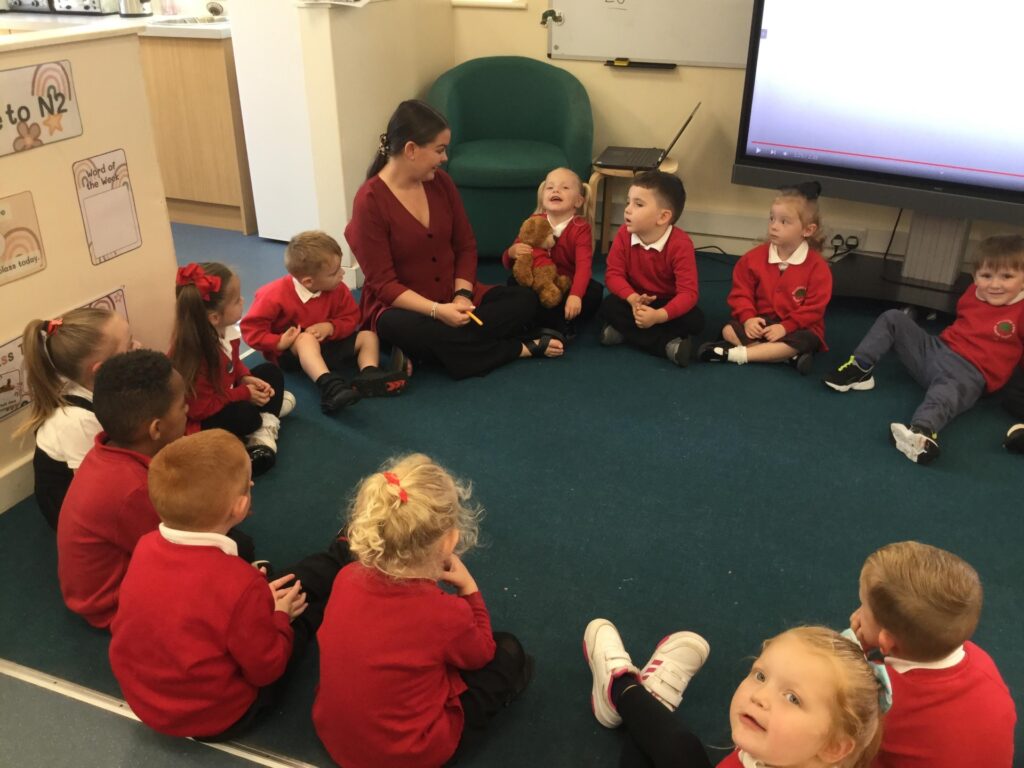
RE
At Pallister Park Primary School, we believe that it is vital for all our pupils to learn from and about religion, so that they can understand the world around them. The National Curriculum states that the Religious Education Curriculum is to be balanced and broadly-based, which promotes the spiritual, moral, cultural, mental, and physical development of pupils at the school and of society, and prepare pupils at the school for the opportunities, responsibilities and experiences of later life.
We therefore follow the agreed Middlesbrough Agreed Syllabus for Religious Education as the basis for our curriculum as we feel that this syllabus allows us to offer rich opportunities to promote an ethos of respect for others, challenge stereotypes and build an understanding of other cultures and beliefs. It provokes challenging questions, encouraging pupils to explore their own beliefs, enabling them to develop respect and understanding for others and to consider their rights and responsibilities to society.
Through Religious Education, pupils develop their knowledge of Christianity together with other principal religions represented within the local community and throughout Great Britain. We develop pupils’ understanding and awareness of the beliefs, values and traditions of other individuals, societies, communities and cultures. We encourage our pupils to ask questions about the world and to reflect on their own beliefs, values and experiences.
Parents have the right to withdraw their children from all or part of religious education and/or collective worship. Please contact the school office if you wish to do so.


